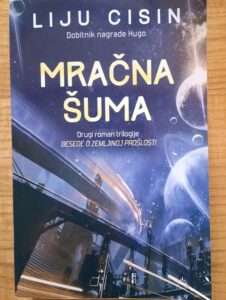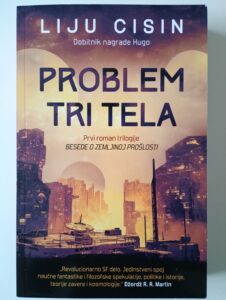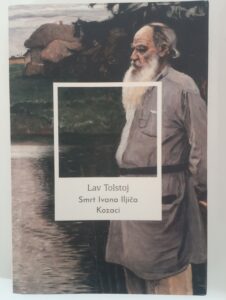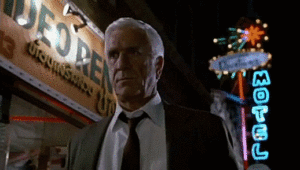The Kite Runner (2003)

…………………………………………………
The Kite Runner Book Review
The Kite Runner is a novel by Afghan-American author Khaled Hosseini that was first published in 2003. It’s a flawed, but deeply moving novel.
………………………………………………….
“For you, a thousand times over“
…………………………………………………..
…………………………………………………..
The book follows the journey of Amir, a young boy from Kabul, and is set against the tumultuous background of Afghanistan’s history, from the fall of the monarchy through to the rise of the Taliban regime. The novel was a bestseller in the US and it remains popular to this day with its own share of detractors. I personally loved it in spite of its flaws as it’s such an emotional and well written story.
The story is a work of historical fiction that is obviously influenced by Hosseini’s life. I would say that at least half of the plot points were at least somewhat inspired by the author’s own experiences or thoughts. It has that emotionally charged and nostalgic tone that can only come from autobiographical fiction. The novel mixes historical with the intimate, finding the humanity in the harsh political landscape of this region.
There is also very much present that coming-of-age element to the narrative that rendered this story Dickensian in nature. The potent of mixture of strong Dickensian personalities and conflicts with the authentic Afghan culture lent the book huge staying power and intrigue. The nostalgic and remorseful tone coupled with the very personal narration made for a deeply touching reading experience. The first-person point of view doesn’t always work for me, but this one worked as it was essential for this type of story and deeply intimate.
The Kite Runner isn’t the most intellectually stimulating literary work, but it still has its fair share of themes that the author explored potently, the primary ones being friendship and redemption. The novel focuses almost solely on male relationships, emphasizing just how excluded women are from everyday life and how separated the sexes are in most Muslim countries. But the power of the book lies in its depiction of machismo and patriarchal mores that plague these societies and negatively impact not just women, but also men. Men suffer from incredibly high societal expectations that hinder their individual passions and pursuits.
Because Hosseini hails from Afghanistan himself, he could draw conclusions from his own experiences and thankfully he did just that by focusing on Islam and depicting it in all of its facets. While the Afghan society is depicted positively in terms of close family relations and friendships, religious fundamentalism is also portrayed in all of its ugly nature. Because the novel is so personal, we do not get to fully experience Afghan history and certain parts are quite rushed, especially the Soviet invasion. But the novel is still quite epic in scope as it spans decades of both individual and national struggle. The rise of the Taliban is well documented albeit they did resemble Hollywood villains a bit too much toward the end.
The novel goes through marriage and how it works in Muslim countries in-depth. It also very much deals with adultery and what is expected of both women and men when it comes to marriage and just how crucial the role of fathers is in this area of life. Baba represents atheist thought that is very much present in this region, but clearly subdued.
…………………………………………………..
…………………………………………………..
An even more important theme than religion is race. The book is culturally highly authentic and unique – it’s also the type of work that makes you learn more about Afghanistan and by the end of it, I’d come to think that I now really have a solid grasp of this country in most aspects. Hazaras are one of the biggest demographics in Afghanistan and neighboring countries and Hosseini went to great lengths to depict just how prevalent racism against them is. Some of the most brutal moments in the book are concerned with this particular theme.
But the biggest theme is redemption as well as the role our past plays in our present. This was the driving force of this story. Politics and history do play a role in all of our lives, especially the country that had such a tumultuous history as Afghanistan, but our own actions, feelings and thoughts influence our lives even more. I do get how some readers may be frustrated with Amir, but I never got that criticism that somehow the protagonist of a story needs to be a great person.
The fact that Amir acted so horribly toward his best friend who eventually turns to be his brother is the catalyst of the entire story and its main inner conflict. We see so much anguish and pain from Amir in his adult years as the past continues to haunt him. We also see the importance of second chances and how parenthood should not be viewed in its most primitive and blood-related form as it can mean so much more than that. The idea of redemption and what it means to Amir is so interesting and it’s by far the most engaging part of the book.
Amir’s complicated relationship with his own father is very well explored too and Baba is an instantly iconic and likable figure. Hassan isn’t all that well developed, but you feel for the poor kid and surely the author wrote that entire family way too extremely – they suffered multiple rapes and murders. That brings me to my next point – the rape scene is so disturbing and so well written that it truly scarred me while reading it. Hassan’s son Sohrab went through similar ordeal and those sections were even more heartbreaking. There is a very potent and powerful moment that depicts just how unfair immigration policies in America are and how difficult it is for migrants to safely escape their region in conflict.
The only part of the book that I strongly disliked is the fight between the protagonist and the antagonist Assef. This sequence of events was so outrageously unrealistic and implausible that it rendered the entire the entire section in Afghanistan problematic. Hosseini is now an American citizen and you can unfortunately see that tendency to Americanize his work and even depict the US in an overly glowing fashion.
…………………………………………………..
…………………………………………………..
The three parts of the novel are very distinct from each other and two of the three fully worked while the last one is flawed, but it ended on a very high note. The childhood section is immensely nostalgic, culturally rich and sweet while the second part explored the immigrant experience and marriage very well. The third part had that bombastic Taliban-centered section that was Americanized and implausible, but it all led to the final couple of chapters that were deeply moving and earned in emotion.
Hosseini wrote The Kite Runner with an elegant, descriptive and intimate style that worked like a charm. His dialogue is very realistic while his descriptions are authentic and rich. The attention to detail in setting, time period and cultural elements was staggering – the titular kite game was so fascinating. The pacing is also very strong while the diverse tone was its main strength. The sporadic humor was lovely while the first half’s nostalgia and joy were so deftly contrasted with the second half’s melancholy, pensive sadness and still hope.










